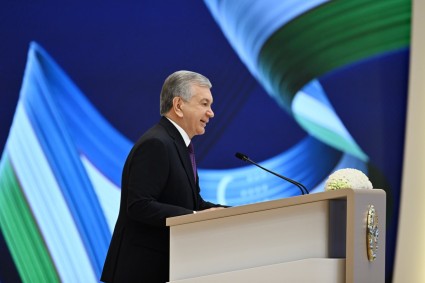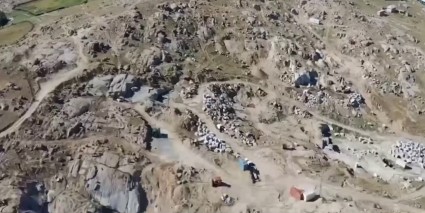It is planned to bring Uzbekistan’s gross domestic product to $200 billion by 2030 and the GDP per capita at $5,000, which is above the initial forecasts, the First Deputy Economy Minister Ilkhom Norkulov announced after a meeting with the president on Thursday.
In 2022, the authorities set a goal of achieving a GDP of $160 billion and a GDP per capita of $4,000 by 2030.
"The president pointed out the possibility of easily achieving a GDP of $200 billion by 2030, as well as a GDP per capita of more than $5,000. This means that our economy will develop not only quantitatively, but also qualitatively," he told the Uzbekistan 24 TV channel.
Reportedly, by the end of 2024, the Uzbek economy will grow to $111 billion from the current $100 billion (which grew by 10-12% after revising the data taking into account the shadow economy).
According to him, when forming the state budget, the year 2025 was declared a year of savings and stability.
"We are talking about the efficient use of all resources - cash, public finances, investments and land. The President has identified reducing the budget deficit below 3% of GDP as one of the main tasks," the first deputy head of the Ministry of Economy and Finance said.
According to him, the goal has also been set to keep inflation at 7% in 2025, at 5-6% in 2026 and 5% or lower from 2027. This differs from the previous plans of the Central Bank, which postponed achieving inflation target of 5% until the second half of 2025.
Meanwhile, by 2030, it is planned to raise the country's sovereign credit rating from the current level of "BB-" (speculative grade) to investment grade (BBB and above).
Deputy Minister of Economy and Finance Akhadbek Khaidarov also said that the main goal in 2025 will be saving and stability of the state budget. He underscored that the efficiency of spending budget funds will be one of the key criteria for assessing the work of each head of a government agency.
"Next year, the tax rates, that is, VAT, corporate income tax and others, will remain unchanged. This will become the basis for increasing economic attractiveness for entrepreneurs and investors," he said.
It is expected that 52% of state budget expenditures will be contributed to social needs, with 46 trillion soums for poverty reduction measures.












